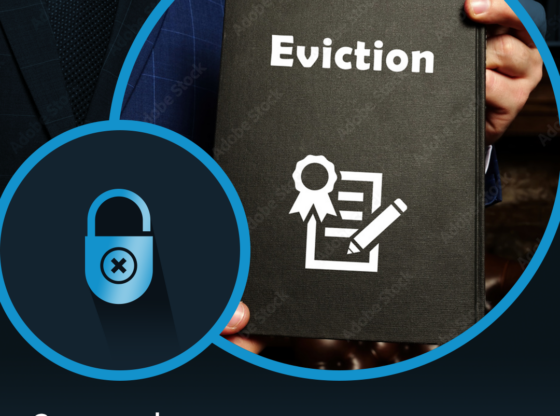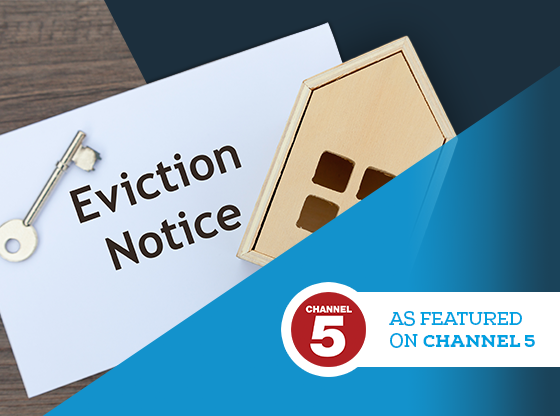Rent Homes (Wales) Act 2016
From 1 December 2022, everyone who rents a home in Wales will have an ‘occupation contract’. An occupation contract is the agreement between tenant or licensee called the ‘contract-holder’ – and their landlord. This follows from the enactment of the Rent Homes (Wales) Act 2016.
Most people who rent their home from a private landlord will get a particular kind of occupation contract called a ‘standard contract’. This will either be a fixed term standard contract or a periodic standard contract.
A fixed term standard contract requires both the contract-holder and the landlord to commit to a minimum term, often the first six months of occupation. After the end of this initial fixed term, the contract-holder and the landlord may agree a new fixed term and the contract-holder will be given a further standard fixed term contract. Alternatively, if the contract-holder remains in occupation (without a new contract) a periodic standard contract is automatically created, and this will continue until either the contract-holder or the landlord brings it to an end.
However, there is no requirement for a fixed term contract, and the contract-holder might start their occupation under a periodic standard contract. A periodic standard contract is one which rolls over from one rental period to the next (e.g. from week to week or month to month).
What happens to existing tenancies?
Under the new law ‘occupation contracts’ will replace existing tenancies and licences.
There are two main types of occupation contract: standard and secure.
Standard contracts will replace assured shorthold tenancies which are currently used mainly in the private rented sector, and secure contracts will replace the secure tenancies used mainly in the social rented sector.
On 1 December 2022, all existing tenancy agreements will automatically convert to an occupation contract. For example, if an existing tenancy is a fixed term assured shorthold tenancy, it will convert to a fixed term standard occupation contract. If it is a periodic assured shorthold tenancy, it will convert to a periodic standard contract.
Whilst an occupation contract can be initiated verbally, it needs to be followed up with a written statement of the contract. This must include all the terms (the do’s and don’ts) of the occupation contract and it replaces a written tenancy agreement. Written statements need to be given within 14 days of the occupation date for new contracts from 1 December 2022. Written statements for converted contracts need to be issued by 1 June 2023.
If someone is renting their home before 1 December 2022, and so already has a tenancy agreement, that tenancy agreement will automatically turn into an occupation contract when the new law comes in on 1 December. The landlord then has up to six months to give the contract-holder a written statement. But if the contract-holder moves into their home on or after 1 December, and so has a brand-new occupation contract, the landlord has to give them the written statement within 14 days of the date they move in.
The Welsh Government have published model written statements that can be accessed here.
Termination of Tenancy
The Section 8 and Section 21 Notices that were previously used under the Housing Act 1988 to terminate an assured shorthold tenancy will no longer apply to Wales.
Section 173 Notice under the Rent Homes (Wales) Act 2019 is the new “no-fault” eviction notice which can be used to terminate a tenancy. This notice is required to give a minimum of 6 months’ notice and cannot be served within the first 6 months of the tenancy.
For contracts signed before 1st December, and which are periodic tenancies that convert to periodic standard contracts on that date, a two-month no-fault notice period will apply after 1st December.
For fixed term tenancies that convert to a fixed term standard contract on 1st December and subsequently become periodic (if the landlord doesn’t seek possession at the end of the fixed term by issuing a two-month no-fault notice), a six-month notice will apply to the substitute periodic contract that follows the fixed term.
The six-month notice period applies only to occupation contracts which begin on or after 1 December 2022.
The notice cannot require possession of the property before the end of the fixed term, unless the tenancy agreement includes a break-clause. Under the new rules, a break-clause cannot allow the landlord to terminate the tenancy before the first 18 months of the tenancy.
The parties can agree to terminate the contract. A fixed term contract may include a contract-holder’s break clause giving the landlord not less than four weeks’ notice.
Restrictions on serving a possession notice or break notice
A landlord is not able to give the tenant a Section 173 Notice (under the Rent Homes (Wales) Act 2019) such a notice if they have failed to comply with their statutory obligations:
- Failed to provide the contract-holder with a written statement of the occupation contract or failed to provide the written statement within the required time frames;
- failed to provide the contract-holder with an address to which the contract-holder may send documents that are intended for the landlord;
- not returned any security, or failed to comply with the requirements relating to authorised deposit schemes;
- breached the requirements of the Renting Homes (Fees etc.) (Wales) Act 2019;
- not provided an Energy Performance Certificate (“EPC”);
- an HMO dwelling is unlicensed;
- the landlord is not registered with and does not hold a licence under the Rent Smart Wales scheme;
- failed to meet the requirements of the Renting Homes (Fitness for Human Habitation) (Wales) Regulations 2022.
The relevant circumstances are:
a) the landlord has failed to ensure working smoke alarms and, where required, carbon monoxide alarms, are installed;
b) the landlord has failed to obtain an electrical condition report, or to give the contract-holder such a report or written confirmation of certain other electrical work;
c) the landlord has failed to comply with the Gas Safety Regulations 1998 by providing to the contract-holder, or displaying, a relevant gas safety certificate.
Retaliatory eviction
Under the Rent Homes (Wales) Act 2016 a landlord is not able to evict a contract-holder if they have served a possession notice on the contract-holder following a complaint from them about the condition of the dwelling or if the contract-holder asked for repairs to be carried out. If a landlord applies to court for a possession order, but it is refused on the grounds that it was a retaliatory eviction, the landlord cannot give a further s173 notice until 6 months later.
Important documents that landlords will need can be accessed here.
Further detailed guidance is available here.
Support
You can contact us if you require assistance with drafting documents applicable under the Rent Homes (Wales) Act 2019, seeking possession of property or assistance in relation to a dispute. We provide nationwide representation on a fixed fee basis.
If you are a landlord or letting agent you can get comprehensive support on a wide range of matters from the British Landlords Association (The BLA).
Members of the BLA will benefit from discounted legal services from Landlord Advice UK, deals on insurance, access to a wide range of documents and more.
Selling Your Property?
This article is sponsored by Sell House Fast 4 Cash, a national property investment company. If you need to urgently sell your property, whether the property is dilapidated or tenanted, you can receive an offer fast with a guaranteed completion date.











